The UK’s best places to spot puffins
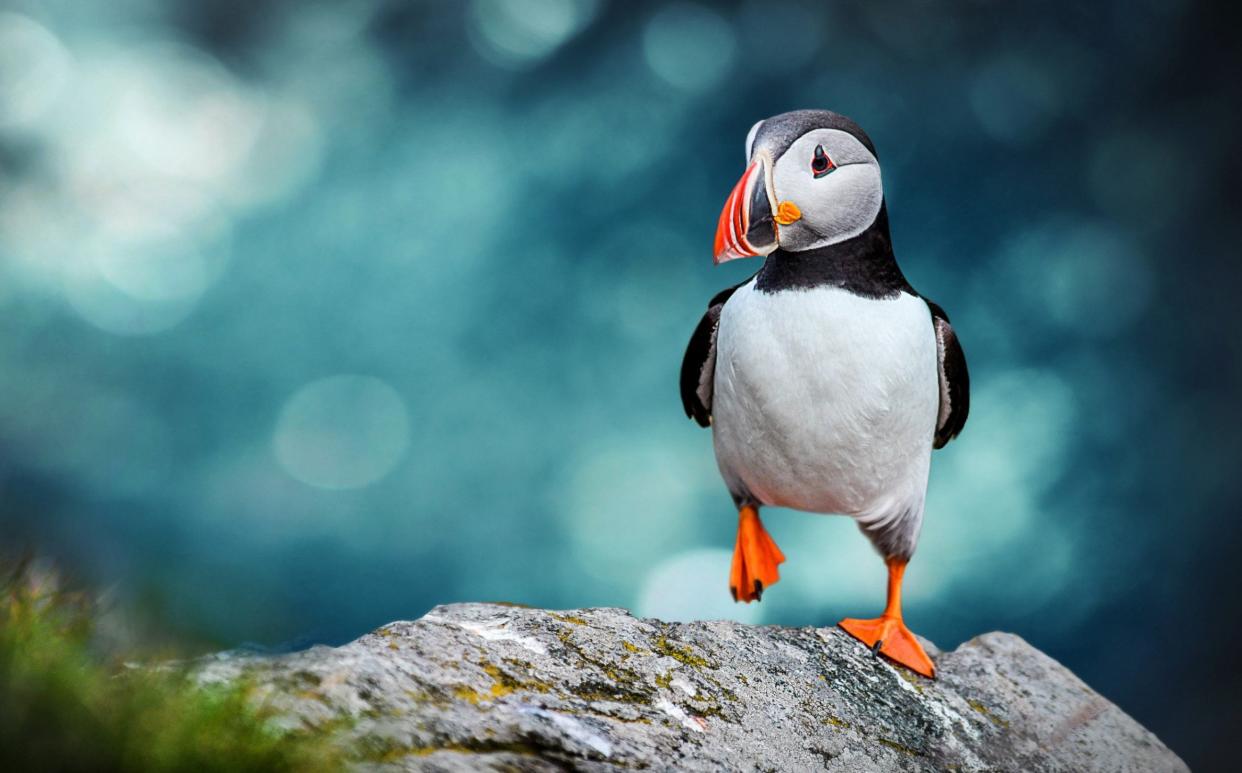
I was on the edge of a Yorkshire cliff, surrounded by strangers, peering into a high-powered telescope, gasping and squealing with untrammelled excitement.
“Bless, it’s her lifetime’s ambition,” my 21-year-old daughter explained, with all the patronising affection of youth. “Look at her, she’s finally seeing her first ever puffin. How cute is that?”
A ripple of applause broke out across our little group, huddled on the white sea cliffs of the gloriously sunny RSPB reserve at Bempton. There was much murmured agreement that yes, it was a terribly special moment.
For me, it was especially so. For years now, I have missed seeing the annual arrival of Britain’s 580,000 pairs of puffins, who land on our shores to breed from mid-April, and leave again in August.
I was too late on the Isle of Lunga, off the Isle of Mull; too early on the Isles of Scilly. I even travelled to the Faroe Islands just after lockdown to see them – but the birdwatching boat was cancelled due to stormy weather.
This year, I was determined to tick these little clowns of the sea off my bucket list. Why? Just look at them.
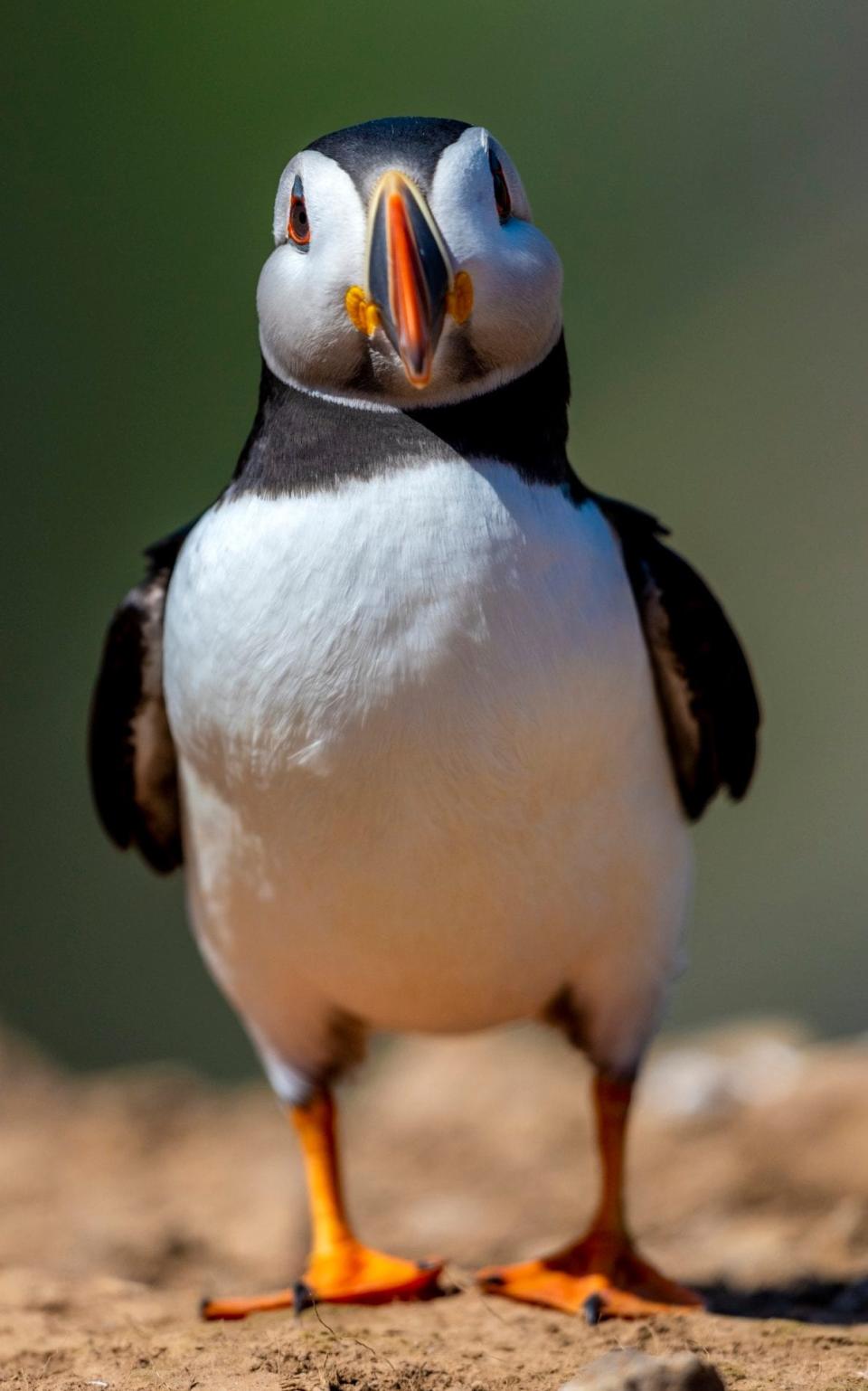
At once comical and earnest, these little birds – doughty, bright-billed, just 11 inches tall – can live for more than 20 years and mate for life. They nest underground in burrows on islands where there are no mammalian predators; and on those where there are (including the mainland), they cling to the rock face to breed and rear their chicks – which are called pufflings. Yes, really.
I wasn’t the only newbie at Bempton that day. Thanks to Wild Isles, Sir David Attenborough’s epic love letter to the beauty and grandeur of Britain, a new generation of visitors has turned its gaze onto the rich wealth of wildlife here in the UK. And the puffins, shown on screen battling with black-headed gulls who endeavoured to mug them of their sandeel catch before they could reach the safety of their burrows, made quite the star turn.
But it was the Wild Isles footage of Sir David getting right up close and personal with them on the Farne Islands – off the Northumberland coast, home to some 200,000 seabirds – that was particularly irresistible. An outbreak of avian flu meant that these islands were closed to visitors last year, but fortunately this year it’s business as usual.
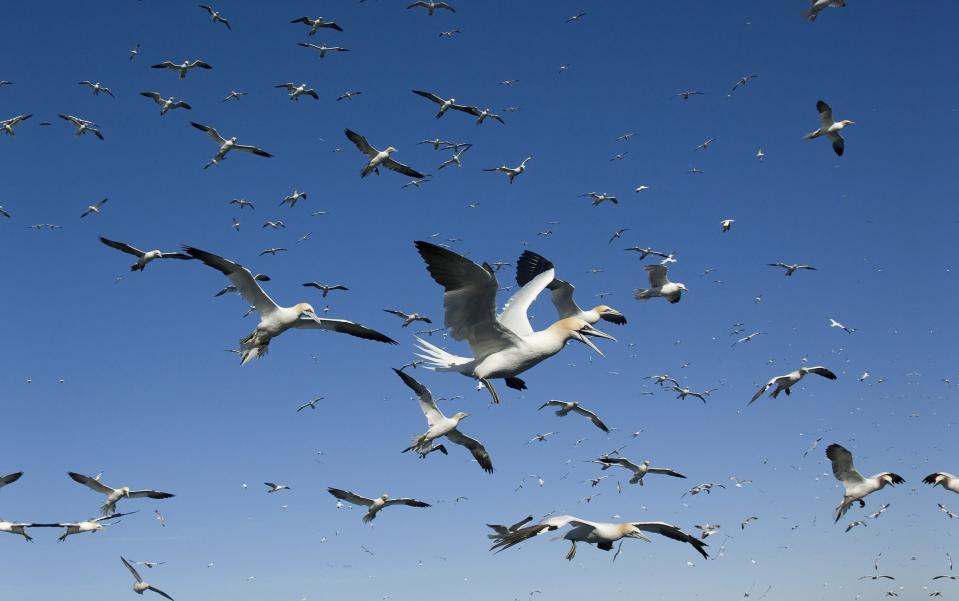
Bempton, however, is always open, as visitors watch the birds at designated viewing platforms set a safe distance away. Though puffin numbers there are relatively modest – some 500 pairs nest along the Yorkshire coast – there’s plenty of other birdlife to keep you entertained when puffins are scarce, including gannets, primaeval cormorants and utterly beautiful razorbills.
The more we learned about each breed, the more impressive each one seemed.
“If you see a flying rugby ball, it’s a guillemot,” the RSPB volunteer explained. “If it looks like a flying tennis ball, it’s a puffin.”
Afterwards – still filled with delight and adrenaline – the puffin effect took full hold. I went slightly crazy in the gift shop (managing to restrict myself to a mug, a fridge magnet and – oh alright then – a Christmas decoration); then I booked tickets for the RSPB boat which leaves from nearby Bridlington in the late afternoons.
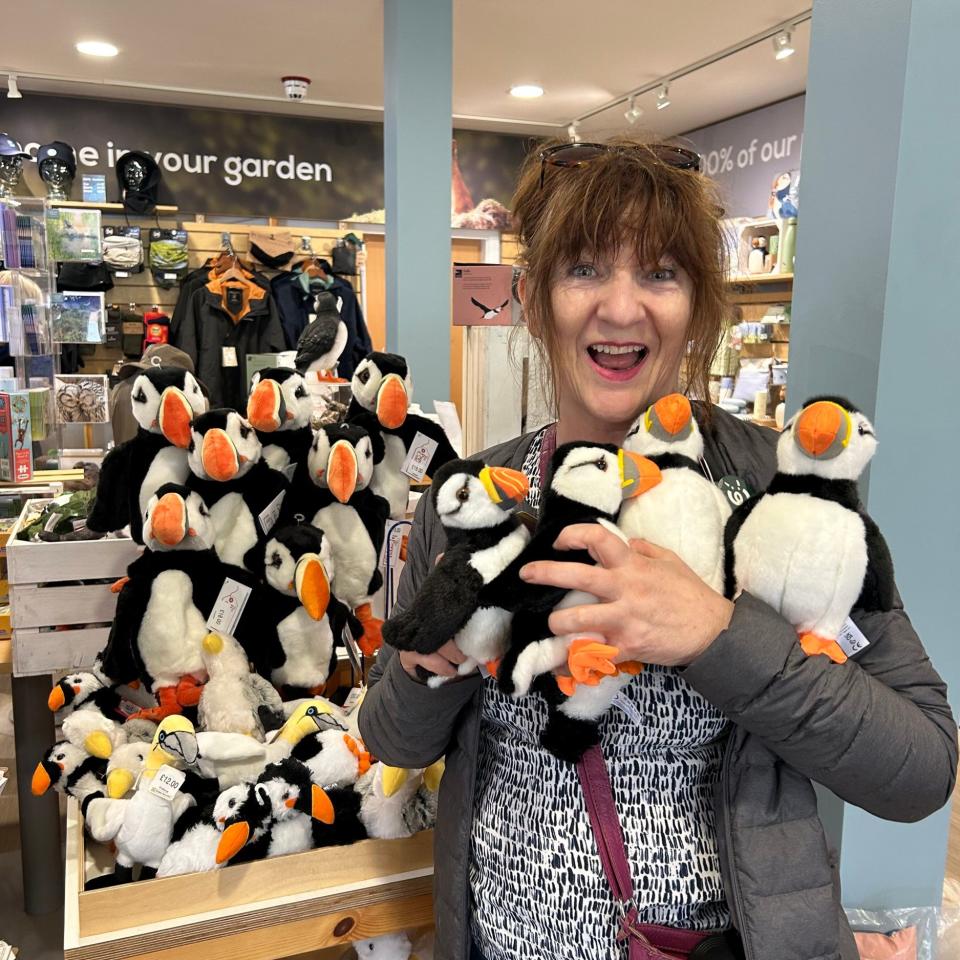
With a few hours to kill, we decided to return to our accommodation – the nearby cottages at High Barn – to explore the welcome basket and attempt a brief reprieve from our wildlife high.
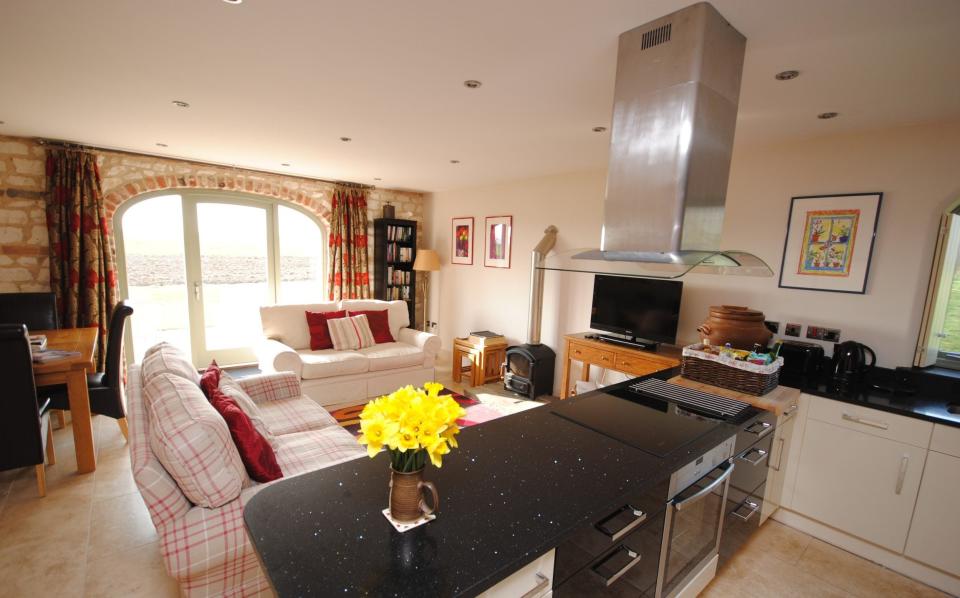
But then, we discovered the owl cam. Trained on a nesting box in which a pair of barn owls were raising their brood, the camera was set up on an external wall of the cottage, wired to broadcast its footage directly to a dedicated channel on the television. We were soon completely addicted. In future, I’m not sure I want to stay anywhere that doesn’t allow me to watch live as tiny dead rodents are torn to shreds and fed to greedy chicks while I drink my morning coffee.
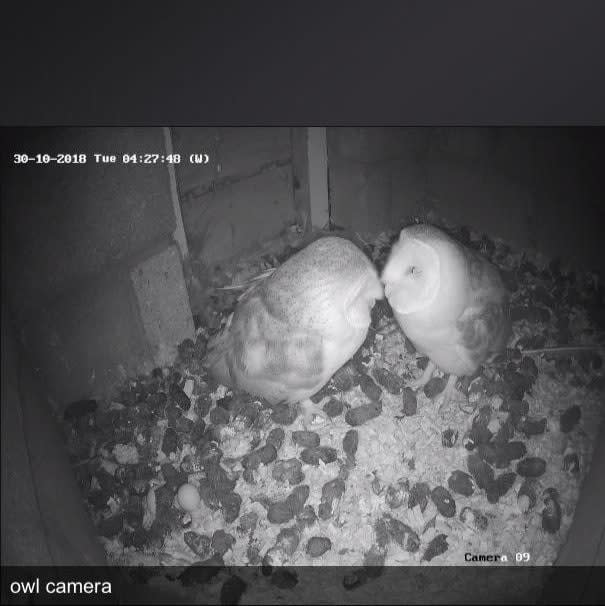
But nature hadn’t finished with us yet. Later, on the boat trip, a pod of eight dolphins, including a calf, joined us in an amazing performance; breaching the waves, spinning, racing and tail-walking for 10 glorious minutes as walkers high on the cliff stopped to watch.
“It’s almost enough to upstage the puffins,” said the awestruck captain. We nodded that it was, indeed, very special. But deep down I knew, nothing would ever upstage a circus of puffins.
Essentials
Judith Woods was a guest of luxury self-catering cottage company Heritage Escapes (01262 674932; heritage-escapes.co.uk) and stayed at The Hayloft at High Barn in Bempton, which comes complete with its own owl cam (minimum stay three nights; from £570).
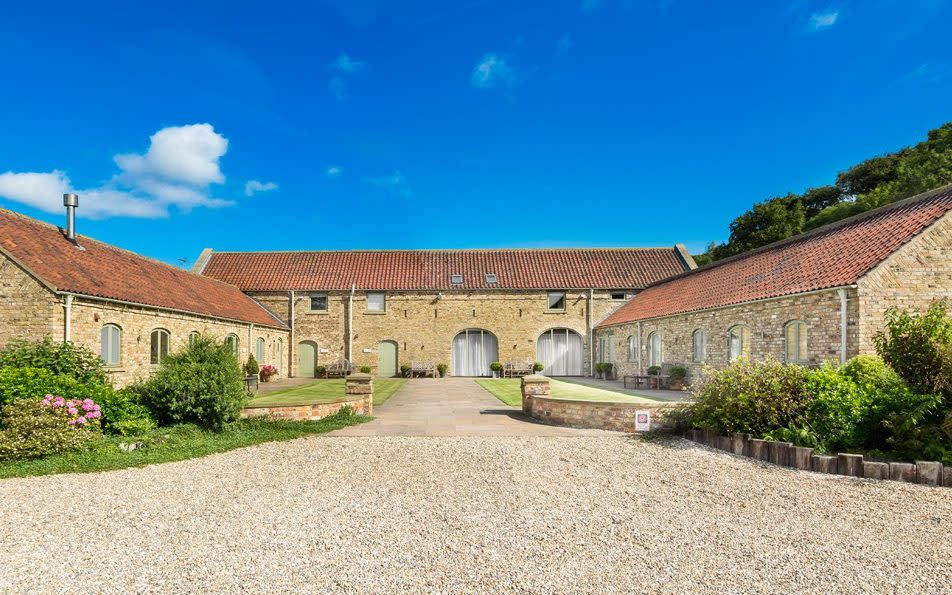
Six of the UK’s best places to spot puffins
Skomer Island, Pembrokeshire
Together with its neighbour, Skokholm Island, Skomer has a large breeding puffin colony – numbering 42,500 at the last count, in March. The exposed headlands and towering offshore rocks make it a haven for all burrow-nesting birds, so visitors walk on designated paths to avoid damaging the intricate tunnels just underneath the surface. You can even stay overnight at a three-star hostel run by the Wildlife Trust of South and West Wales.
Tŷ Hotel in Mitford Waterfront (01646 400810; ty-hotels.com) has doubles from £100.
The Farne Islands, Northumberland
Sir David Attenborough’s favourite place in the UK for wildlife-spotting lies a couple of miles off the coast from the fishing village of Seahouses. As well as its large puffin population there are razorbills, guillemots and seals. You can visit the National Trust-owned site or take boat trips around it.
Beadnell Towers Hotel (01665 721211; beadnelltowers.co.uk) has doubles from £183.
Rathlin Island, Northern Ireland
Here you can find Northern Ireland’s largest seabird colony, including hundreds of pairs of puffins. A ferry from Ballycastle takes visitors the six-mile journey to Rathlin, followed by a bus to the RSPB Seabird Centre which is by an “upside-down” lighthouse, a feat of engineering that has the light at the bottom to cut through the fog.
Glass Island Boutique B&B (07800 889863; glassislandballycastle.com) has doubles from £146.
The Isle of May, Scotland
Situated in the mouth of the Firth of Forth, boat trips to the Isle of May depart from Anstruther in Fife and North Berwick in East Lothian. In early summer the cliffs are alive with the spectacular sights and sounds of seabirds and puffins entering and leaving their burrows.
The Bank in Anstruther (01333 310189; thebank-anstruther.co.uk) has doubles from £110.
Sumburgh Head, Shetland
With steep cliffs, a historic lighthouse, and cacophonous seabird colonies – the RSPB site of Sumburgh ticks a lot of boxes. As well as puffins, there’s also a high chance of seeing minke whales, orcas and dolphins. In the winter when the puffins have long gone, it’s also the best place in Britain to see the Northern Lights.
Sumburgh Hotel (01950 460201; sumburghhotel.com) has doubles from £140.
Flamborough Cliffs, East Yorkshire
Just a stroll along from Bempton Cliffs, these eroding chalk caves, holes and stacks provide the perfect backdrop for breeding puffins, auks, gannets and gulls. The chalk grassland is also rich in wild flowers which attract a host of butterflies and unusual moths.
Flamborough Manor (01262 850943; flamboroughmanor.co.uk) has doubles from £125.


